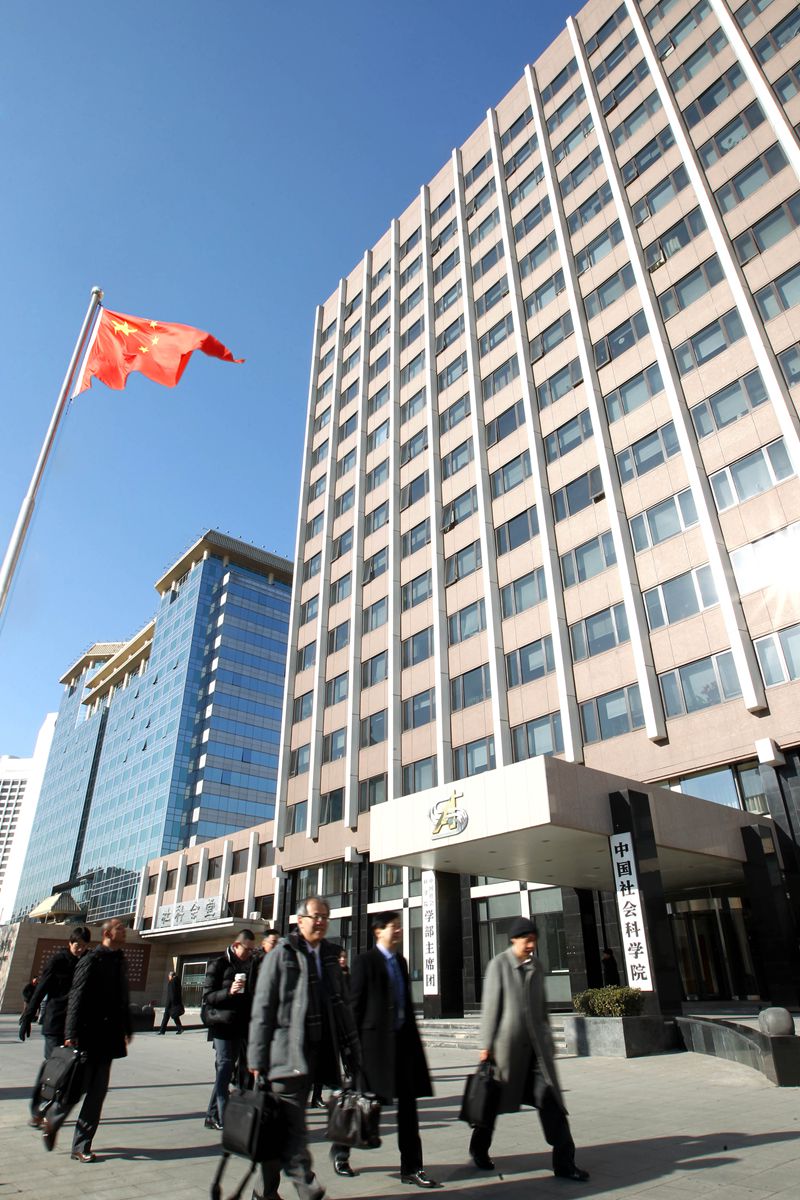New types of think tanks urged to combine theory with application

The Chinese Academy of Social Sciences is a top think tank in China. (PHOTO: ZHU GAOLEI)
The General Office of the Central Committee of the Communist Party of China and the General Office of the State Council recently issued the Opinions on Strengthening the Construction of New Types of Think Tanks with Chinese Characteristics. Many academies currently prioritize studies based on the application of policies instead of fundamental theoretical research. Scholars shared their views about the relationship between these two kinds of research and their roles at new think tanks.
Liu Qun, deputy director of the Economic Research Center of the People’s Liberation Army National Defense University, distinguished research institutes and think tanks in terms of their roles and functions. He said that although the two sometimes overlap in research fields, they are different in nature. Scientific research focuses on seeking “truth,” whereas think tanks are more practical, said Liu.
Research by think tanks must combine both experience and logic in the face of complex realities. Ding Yuanzhu, a professor from the Chinese Academy of Governance, said that scientific research is a world of studies about “truth,” while think tanks strive to solve practical problems.
Scholars widely agree that theoretical and application research models should not distort the mission of new types of think tanks. Ding said the essence of academic research is to find out the nature and purpose of research subjects, whereas think tanks aim to propose measures for practical problems. Liu said fundamental theoretical research aims to simplify complex realities, extract key variables, find logical relations and give reasonable interpretation to these relations. However, studies based on practical strategies depend on rich real-world experience and require scholars to be sensitive to social problems.
So, does this mean think tanks neglect theoretical research because of overemphasis on application studies? Jiang Hui, a research fellow from the Institute of Information Studies at the Chinese Academy of Social Sciences (CASS), noted new types of think tanks should not only carry out application research, but also offer new thoughts, knowledge and strategies to ensure academic research benefits the country and its people. Construction of new-type think tanks should be based on profound thinking and rich knowledge with a focus on major theoretical and practical problems, added Jiang.
Song Yuehong, a research fellow from the Institute of Contemporary China Studies at CASS, said the construction of new types of think tanks in China aims to provide intellectual support for China’s ideological and theoretical construction, policy making, and social guidance. They also provide theoretical support and policy guidance for understanding and tackling major practical problems. Construction of new types of think tanks should be related to prosperity and development of philosophy and social sciences with Chinese characteristics, added Song.
“Importance should be attached to studies of fundamental theories and practical strategies. They are indispensible [for construction of new types of think tanks]. We should transform academic research achievements into effective policies and measures,” said Jiang, adding that only with the support of profound academic theories can in-depth and sustainable research with practical measures be conducted. Academic theories and modern techniques offer advanced instruments for policy analysis, and big data and data mining offer effective means, said Jiang.
